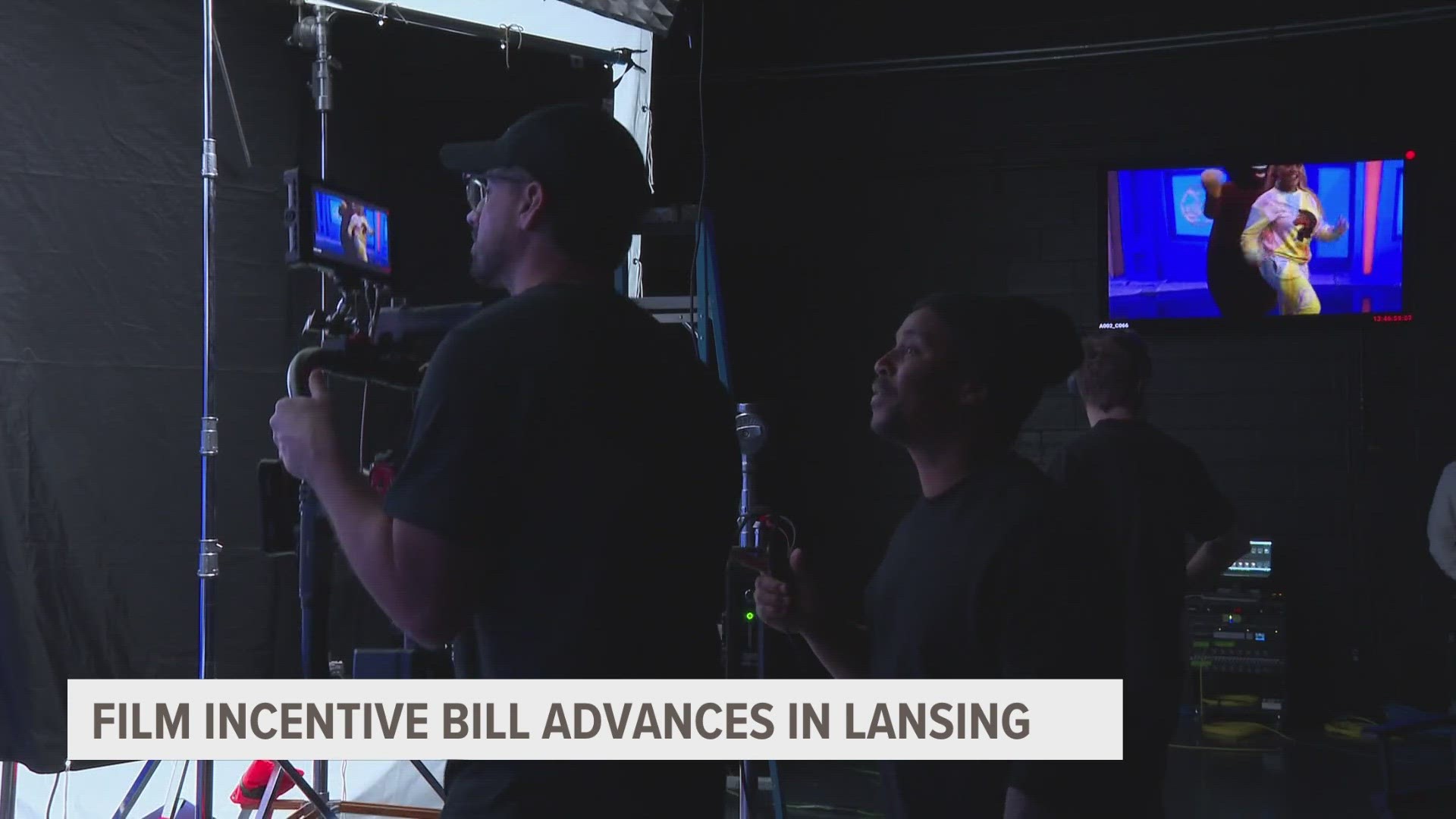LANSING, Mich. — The Michigan Multimedia Jobs Act passed out of Michigan's economic development and small business house committee with 10 votes in favor and 2 passes.
This marks an important move forward for filmmaking in the state.
The vote comes after a February hearing where college students, industry professionals, and lawmakers testified to the importance of reviving a new and beneficial film incentive program to the state.
Among those testifying was the Michigan Film and Video Alliance's Legislative Action Committee Chair Alexander Page, who celebrated today's vote.
"This is the very first step in showing that this is a great opportunity for Michigan," Page says.
"Pro jobs, pro Michigan and pro economy and [trying] to have Michigan compete on an even playing field. There are 40 other states and cities that have a program, we're one of the few that don't have one," Page continued.
The Multimedia Jobs Act follows in the tumultuous footsteps of Michigan's highly controversial film incentive system which was repealed in 2015. Yet Page and the Michigan Film Industry Association, who helped design the new legislation, are excited to introduce the reimagined legislation to the house as a whole.
"This is totally different than the old program, we built this from scratch [and] tore down the old one," Page said.
This new structure of the program comes in the form of Michigan-based tax credits, which will be granted to productions who choose Michigan as their destination to create. The tax-credit system incentivizes producers to spend money on Michigan-based businesses and workers, or they have the opportunity to sell the tax-credit to a Michigan-based buyer - fundamentally keeping the financial incentives in Michigan and spent in Michigan.
"We're talking commercials, corporate videos, commercial photography, TV and film," Page said.
"We want to make sure that we're hiring local and that we're highlighting and showcasing the beautiful state we have," Page said.
Page sees a flourishing economic stimulus that will occur over the 10-year evaluative period the bills include, allowing the legislation to be reevaluated and its effectiveness determined.
"We know that this is going to be bringing six to $8 billion worth of economic activity in the first 10 years of the program, and that's significant to the state," she said.
Page wants to emphasize that said economic stimulus does not only support creatives, but a vast array of industries that are often unrecognized as being major contributors in a production.
"We're talking about caterers, carpenters, electricians, lumberers, restaurants and hospitality. All of those are a huge part of the infrastructure," Page said.
This messaging and ambition now moves on to the Michigan House of Representatives as a whole, a challenge that Page welcomes.
"Being able to continue that messaging on a more regional level, and letting [people] know how it can impact their community on so many levels."
"This is about Michigan jobs and promoting the state. Those are the key things," Page said.

